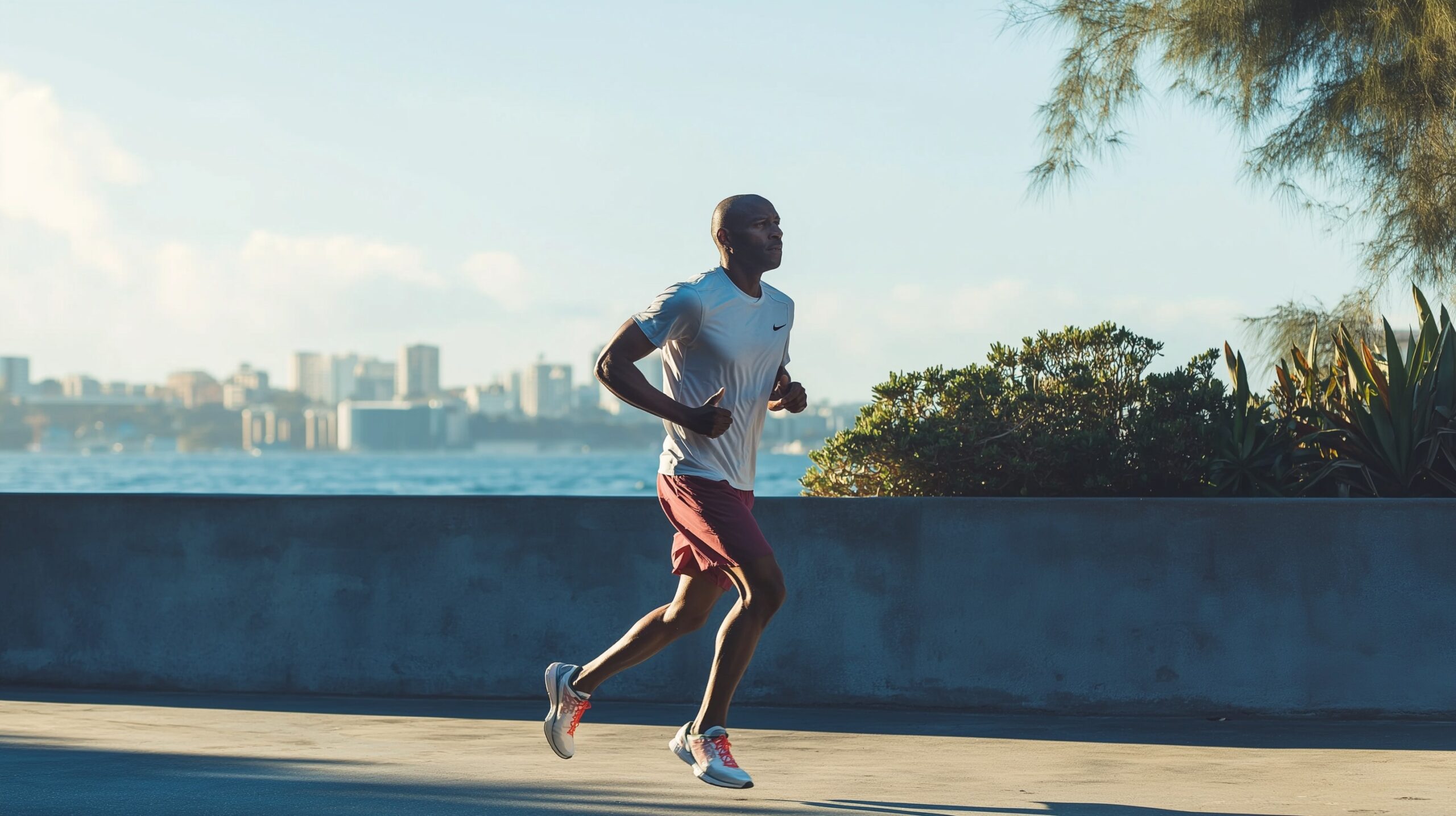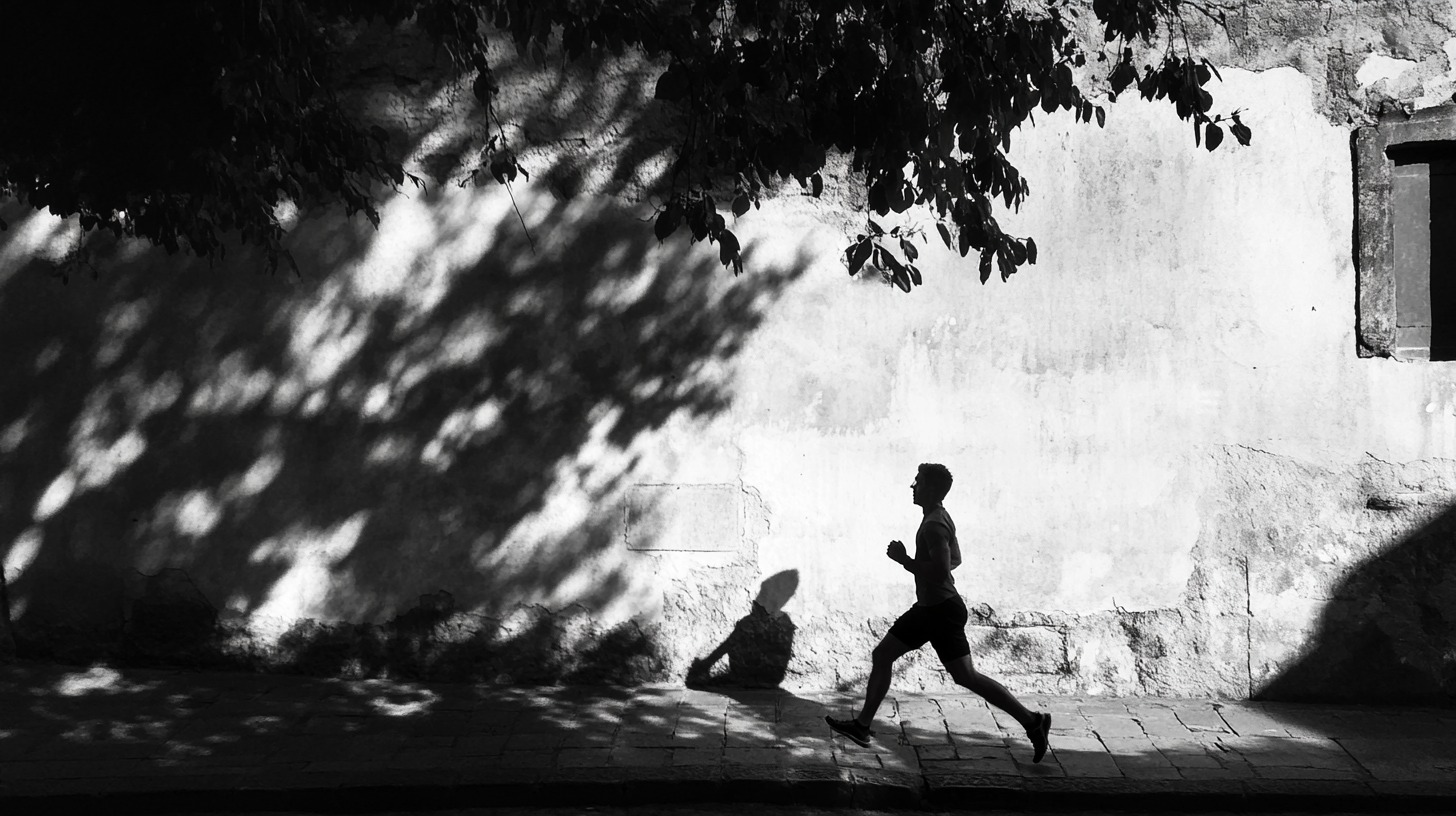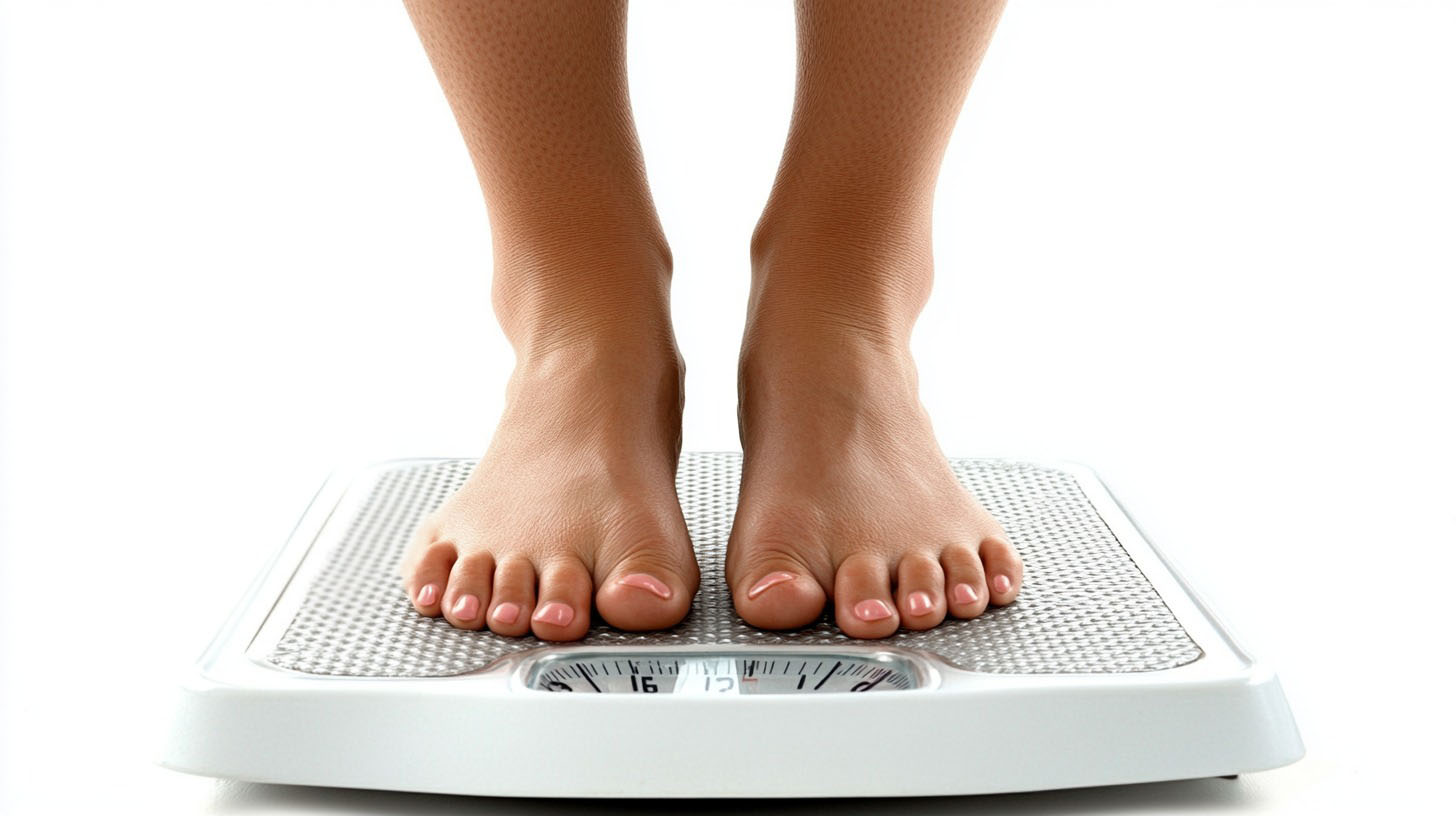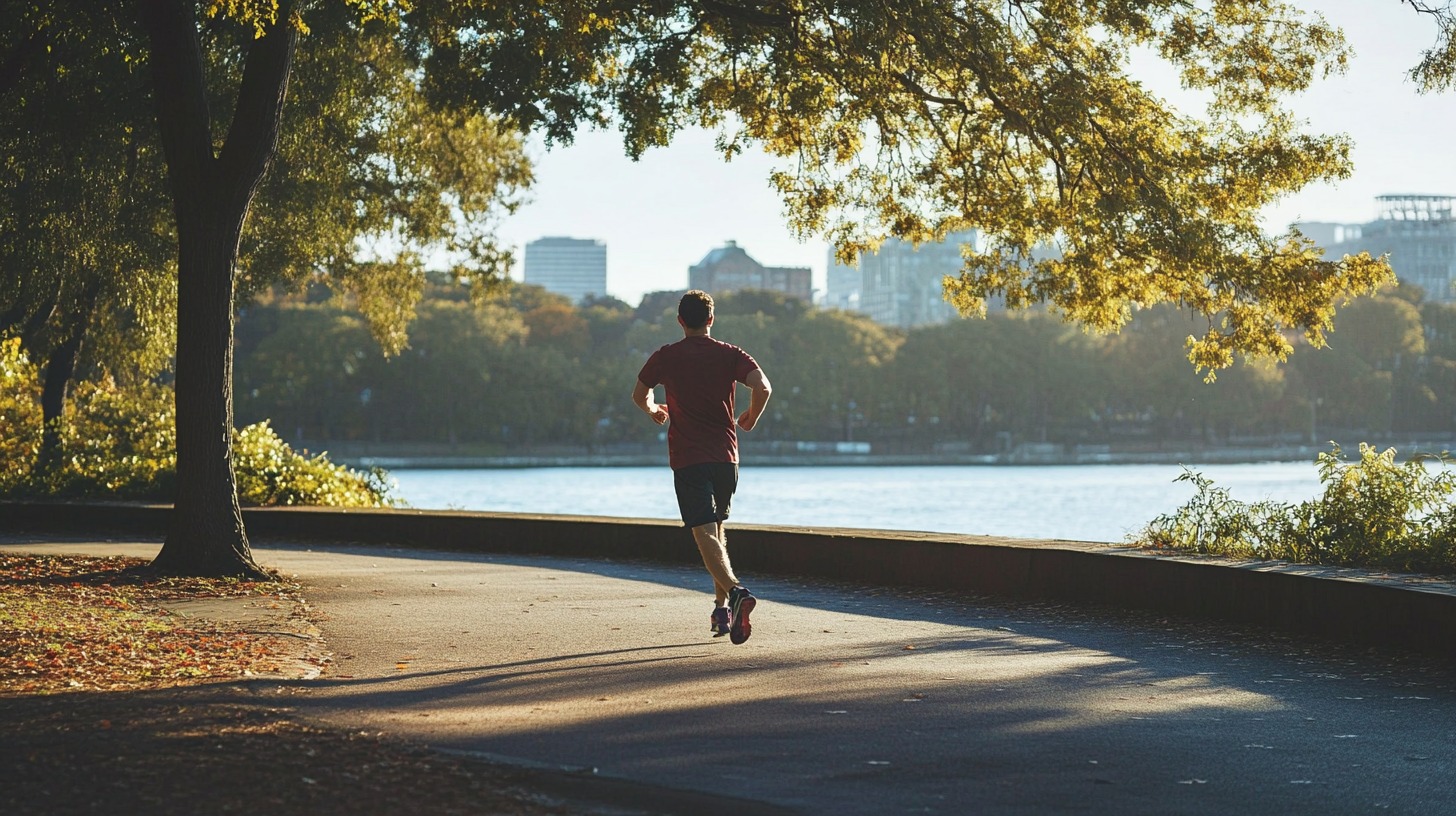Running on an empty stomach sparks endless debate among runners, trainers, and fitness experts alike.
Some swear by the fat-burning and time-saving benefits, while others caution against the risk of energy crashes and muscle loss.
I’ve had my fair share of successes and struggles experimenting with fasted runs. It’s a polarizing topic for a reason, what works beautifully for one person might be a nightmare for another.
I’ll break down the potential perks and pitfalls of heading out the door before breakfast, giving you some food for thought (pun intended) about how it might fit into your routine.
When Running on an Empty Stomach Might Work
For me, running on an empty stomach is perfect for shorter, low-intensity jogs under an hour. These runs don’t place a huge strain on glycogen stores, making it easier for your body to adapt without hitting a wall.
Think of it as giving your body a gentle nudge toward efficiency without pushing it to the limit.
For endurance runners, fasted runs can serve a purpose in training. Occasionally running without eating helps your system become more efficient at utilizing fat as fuel, a crucial skill for those long marathon miles. But this strategy is best used sparingly and in a controlled way.
Stick to easy-paced runs and save the high-intensity or long-distance efforts for times when you’re properly fueled.
I’ve also found that a small ritual can enhance the fasted experience without breaking its benefits. Sipping water or black coffee before hitting the road can provide just enough of an energy boost to make the run feel smoother. But the golden rule remains the same: listen to your body.
If you feel faint, sluggish, or overly drained, it’s a clear sign to rethink fasted running for that day. Fasted runs are a tool, not a requirement, and they should complement your training rather than compromise it.

When You Should Avoid It
High-intensity workouts, like intervals or sprints, demand quick energy and are to be avoided if you haven’t eaten. Tackling those on an empty stomach can leave you struggling to finish strong, or at all. Not all runs are created equal, and there are times when eating before lacing up is non-negotiable.
Longer runs, anything over 60 minutes, also require fuel. Trust me, you don’t want to be miles away from home and feel your energy tank hit empty.
And if you’re prone to low blood sugar or have health conditions like diabetes, skipping pre-run snacks can be a risky business.
For me, the key is balancing what my body needs with the demands of the workout. If it’s a tough training session, a light carb snack 30 minutes before can make all the difference. There’s no shame in eating smart when the situation calls for it.
What are the Benefits?

I’ve come across numerous pros during my runs on an empty stomach, like:
Reduced Digestive Distress
When I first ventured out for a run without eating, I was pleasantly surprised by how much better my stomach felt.
- Side stitches
- Bloating
- Cramps or nausea
It was a stark contrast to those times I regretted indulging in just a bit too much peanut butter on toast before hitting the road.
Skipping breakfast takes digestive discomfort off the table. With no food bouncing around in your stomach, you can focus entirely on the run itself.
For those of us prone to nausea or unease during exercise, running fasted feels like starting fresh, with nothing weighing you down.
Increased Fat Utilization

One of the most surprising discoveries for me was how running on an empty stomach shifts your body’s fuel strategy.
Without a recent meal to draw on, your system naturally taps into fat reserves as its primary energy source, especially when glycogen stores are running low after a night of fasting.
- How it works: With glycogen stores depleted, your body adapts by burning fat for energy, enhancing metabolic flexibility.
- Who benefits most: Endurance runners or marathon trainees can use this strategy to prepare for the long miles when glycogen starts to run out.
- Key takeaway: It’s not about instant results but gradually improving your body’s efficiency at using fat for fuel.
While fasted running isn’t a magic fix, it’s a helpful addition to a well-rounded training plan.
When used sparingly, it can prepare your system to perform better under fatigue, especially in those later race miles where every ounce of energy counts.
Convenience and Time-Saving
One of the standout perks of running without eating is how much time you save.
There’s no need to plan a meal, prep ingredients, or wait for food to digest before hitting the road. Instead, you can jump right into your workout without the extra steps.
- No Meal Prep: Skip the hassle of deciding what to eat and making it.
- No Digestion Time: Avoid waiting around for food to settle before you run.
- Quick Start: Roll out of bed, throw on your gear, and go.
Potential Weight Management Benefits

One of the unexpected perks of running before breakfast is the behavioral shift it can inspire. For me, starting the day with a fasted run sets a positive tone that carries over into other aspects of my routine. It’s like a domino effect of good decisions that begins with tying my shoelaces.
Here’s how it can help:
Healthier Food Choices
After a morning run, I’m far more likely to grab a nutrient-packed smoothie or a hearty oatmeal bowl instead of succumbing to the lure of sugary pastries.
It feels easier to fuel my body with what it needs after putting in the effort to exercise.
Appetite Suppression
Exercise has a natural appetite-suppressing effect, and I’ve found myself less inclined to snack or overeat throughout the day after a fasted run.
A small win can help maintain a balanced calorie intake without feeling like you’re restricting yourself.
The Bottom Line
Running before breakfast has its benefits, but it’s not the perfect solution for every runner or every workout.
Short, easy jogs might feel great without a meal, while high-intensity sprints or long runs demand a bit more fuel to keep your energy levels steady.
The key is to pay attention to how your body responds, experiment with different approaches, and strike a balance that aligns with your goals and comfort level.
At the end of the day, running is about feeling good and enjoying the process.
